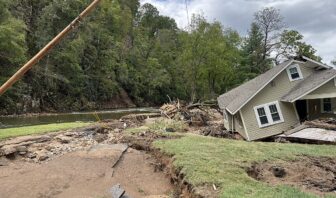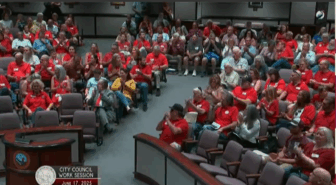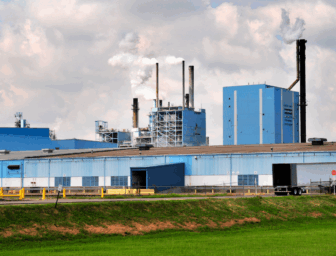For Immediate Release
December 17, 2012
Contact:
Beth Kemler, 202-641-0955, beth@chesapeakeclimate.org
Kelly Trout, 240-396-2022, kelly@chesapeakeclimate.org
Environmentalists agree with AG Cuccinelli that renewable energy law is broken, but propose substantive fixes instead of the repeal of all incentives
RICHMOND—A state environmental group today released an analysis of new data showing that Virginia’s renewable energy law grants electric utilities huge customer-funded rewards for a failing performance. The report puts clean energy advocates in the rare position of agreeing with Attorney General Ken Cuccinelli, whose office presented its findings that Virginia’s Renewable Portfolio Standard (RPS) law is a bad deal for consumers to members of the General Assembly on the same day.
Where the two sides strongly disagree, however, is how to fix the law. The report card offers a suite of solutions that the General Assembly can enact to fulfill, rather than abandon, the law’s original purpose of spurring clean energy in the commonwealth.
“Virginia’s renewable energy law was meant to kick-start a clean energy industry in the commonwealth. It should be contributing to healthy families, a healthy economy and a healthy climate. The data, however, shows that the law is coming nowhere close to living up to its intent,” said Beth Kemler, Virginia State Director for the Chesapeake Climate Action Network and author of the report.
The analysis, entitled, RPS Report Card: How Virginia’s Renewable Portfolio Standard Rewards Utilities For A Failing Performance—and How to Fix It, grades Dominion Power and Appalachian Power on their performance under the RPS according to four categories: the proportion of energy counted toward the RPS from new facilities, the amount of Virginia-made energy, the amount of solar and wind energy, and transparency in reporting. The analysis is based on data from the companies’ annual reports submitted in November 2012. This year’s reports by utilities include expanded data available for the first time due to beefed up reporting requirements passed by the General Assembly in 2012.
Findings about the companies’ 2011 performance under the law, which offers financial rewards for meeting renewable energy goals, include:
- Though the RPS was meant to grow a renewable energy industry in the commonwealth, all but a tiny fraction of the renewable energy that utilities put toward the goals in 2011 came from facilities that already existed before the RPS incentives were created in 2007.
- The only power that was credited to the RPS in 2011 that came from new facilities (ones that went online after the law was created) came from Appalachian Power. Wind farms in Indiana and Illinois provided 1,508 MWh, enough to power about 100 homes. This comprised 0.04% of all of the energy counted toward the RPS in 2011 and also accounted for the only wind power used toward the RPS by either utility.
- The average facility providing power for the RPS in 2011 went online in 1945—the year World War II ended. If it were a person, it would be eligible for Social Security.
- The majority of Virginia’s 2011 RPS energy—54%—was purchased as Renewable Energy Certificates (RECs) from our neighbors in Maryland.
In addition to analyzing data on the companies’ 2011 RPS performance, the report digs deeper into the flaws in the law that undermine its integrity, such as the loophole that allows a single MWh of renewable energy to be counted toward the RPS goals by two different companies.
While the report wholeheartedly agrees with the Attorney General’s conclusion that the RPS has not served its intended purpose thus far, it proposes different policy recommendations. Rather than simply strip the financial incentive for utilities to meet the goals, as Attorney General Cuccinelli has proposed, the group recommends solutions to strengthen what utilities are required to do in order to qualify for it.
“Just because the law was written with flaws doesn’t mean we should throw up our hands and abandon it. Members of the General Assembly had good intentions when they passed the law—now they need to transform it from a consumer rip-off into an air-tight solution for spurring Virginia-made wind and solar power,” said Kemler.
The report recommends two major changes to the RPS law that, in concert with each other, would transform utilities’ performance and ensure the growth of a clean energy industry in Virginia. It recommends:
- Replacing the extra credit (200-300%) that the law currently offers to wind and solar power with a tiered system, common to many RPS laws in other states. In order for a utility to meet the RPS goals, it would have to get a portion of the energy from the cleanest, most modern technologies—wind and solar power.
- Requiring that all of the energy used to meet the RPS goals come from facilities in Virginia.
Policy experts warned that either of the changes alone would not be enough. They said both are necessary to stop the rip-off and make the law live up to its intent.
While this much detail about utilities’ RPS performance just became available last month and the Attorney General’s office hadn’t taken a public stance on the law until recently, clean energy advocates have been speaking out about the failure of the RPS to live up to its intent since last year. In early October, hundreds of Virginians participated in a week-long picket of Dominion’s downtown Richmond office. They decried the customer-funded reward of approximately $77 million the company is receiving under the RPS without developing wind and solar power as a rip-off.
“It should be a wake-up call for members of the General Assembly to see environmental advocates and Attorney General Cuccinelli agree that our renewable energy law must be fixed,” said Kemler. “As we head into the 2013 legislative session, Virginians from across the state are already urging their lawmakers to strengthen the law and ensure it brings us the intended benefits of less pollution, cleaner air and new jobs.”
Click here to download a .pdf copy of the report card.
###
The Chesapeake Climate Action Network (CCAN) is the first grassroots, nonprofit organization dedicated exclusively to fighting global warming in Maryland, Virginia, and Washington, D.C. Our mission is to build and mobilize a powerful grassroots movement in this unique region that surrounds our nation’s capital to call for state, national and international policies that will put us on a path to climate stability.




